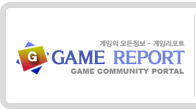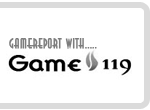President Lee Jae-myung (center) attends a press conference at the presidential office in Seoul on Friday to announce the joint fact sheet outlining the results of his second summit with US President Donald Trump in Gyeongju on Oct. 29. National Security Adviser Wi Sung-lac (right) and Kim Yong-beom, the presidential
오션파라다이스다운로드 chief of staff for policy, stand beside him. (Yonhap)
The United States has, for the first time, formally backed South Korea’s right to pursue civil uranium enrichmen
10원야마토게임 t and spent-fuel reprocessing, opening the door for the allies to launch negotiations on expanding Seoul’s long-sought nuclear-fuel autonomy.
Washington’s greenlight appeared in a carefully
알라딘게임 worded clause in the joint fact sheet released Friday, more than two weeks after the summit between South Korean President Lee Jae Myung and US President Donald Trump in Gyeongju, North Gyeongsang Pro
릴게임황금성 vince, on Oct. 29.
“Consistent with the bilateral 123 agreement and subject to US legal requirements, the United States supports the process that will lead to the ROK’s civil uranium enrichm
릴게임몰메가 ent and spent fuel reprocessing for peaceful uses,” the English-langauge joint fact sheet read.
The fact sheet does not explicitly mention revising the 2015 US-ROK civil nuclear cooperation pact ? commonly known as the 123 Agreement.
However, because both enrichment and reprocessing are restricted or outright banned under the current agreement, negotiations to expand South Korea’s nuclear-fuel cycle capabilities have become inevitable.
Under the current agreement, Seoul may enrich uranium to below 20 percent only with Washington’s written consent. The procedure ? which requires approval from a high-level bilateral commission and a formal written agreement ? is so cumbersome that South Korea has never been able to conduct enrichment in practice.
Reprocessing spent fuel, meanwhile, is entirely prohibited under the pact.
“On the nuclear agreement issue, we have secured broad agreement (with the US) and set the direction," national security advisor Wi Sung-lac said during a press briefing. "The direction is now set toward granting South Korea the authority to carry out enrichment and reprocessing, and follow-up consultations will proceed on that basis.”
Both capabilities are vital for South Korea, which relies heavily on nuclear power and seeks to strengthen its position as a global nuclear reactor exporter.
Reprocessing helps manage the country’s growing stockpile of spent nuclear fuel and enables the recycling of valuable uranium.
All spent-fuel storage pools are expected to reach saturation beginning in 2030. Expertise in spent-fuel treatment and disposal would also give South Korea a significant advantage in exporting nuclear power plants.
Uranium enrichment rights are equally important for Seoul, as they bolster energy security by stabilizing the nuclear-fuel supply chain against geopolitical risks.
South Korea currently depends entirely on imports for the low-enriched uranium used in its reactors. Enrichment rights are also essential for obtaining high-assay low-enriched uranium ? enriched to below 20 percent ? which is crucial for the commercial development and global competitiveness of small modular reactors.
President Donald Trump, with Commerce Secretary Howard Lutnick, Secretary of State Marco Rubio and Treasury Secretary Scott Bessent, holds a talk with South Korean President Lee Jae Myung at the Gyeongju National Museum in Gyeongju, South Korea o Oct. 29. (AP)
Challenges ahead for Seoul
However, the road for Seoul to gain these capabilities in practice will not be easy.
Although Seoul and Washington have reached only a broad, principled understanding on allowing South Korea to enrich uranium and reprocess spent fuel, complex follow-up negotiations will be needed to translate that broad language into actual implementation.
“To resolve the issue of enrichment and reprocessing, follow-up consultations with the United States are necessary to adjust our existing agreement. Whether these adjustments will be significant or limited will depend on upcoming negotiations,” Wi explained.
Seoul is seeking to secure enrichment and reprocessing rights equivalent to those held by Japan by revising the current pact before it expires in 2035.
Tokyo has obtained comprehensive prior consent under the the 1988 US?Japan Nuclear Cooperation Agreement, meaning Washington is deemed to have already agreed in advance to Japan’s enrichment and reprocessing activities.
First Vice Foreign Minister Park Yoon-joo said Friday that Seoul is “proceeding with consultations with the US with revision (of the nuclear agreement) in mind,” speaking at the National Assembly’s Foreign Affairs and Unification Committee.
However, another possible scenario is that discussions may initially proceed within the framework of the existing pact to grant South Korea authority to enrich uranium and reprocess spent fuel.
In fact, the fact sheet itself does not explicitly mention revising the nuclear agreement ? instead expressing US endorsement “consistent with the bilateral 123 Agreement and subject to US legal requirements.”
Another key challenge is the divergence of opinions within the US administrationon the matter.
“There are a variety of opinions within the US. Views can differ not only among departments but even within the same department between different levels,” Wi explained, adding that these differing positions required officials to “digest, debate, and sometimes persuade one another until the very end.”
Wi also noted that enrichment and reprocessing were discussed up to the final moments before the fact sheet’s release ? a sign that Washington views the issue as highly sensitive.
During the same press briefing, President Lee also hinted that internal differences within the US government were a key reason the allies issued the joint statement more than two weeks after the Lee?Trump summit.
Responding to a question about the delay, Lee said, “I believe some coordination may have been necessary within the US administration regarding uranium enrichment, spent-fuel reprocessing, and nuclear-powered submarines.”
US nod ends blockade
However, Jun Bong-geun, president of the Korea Nuclear Policy Society, said the “US political and principled endorsement” is still significant because it enables the start of enrichment using pyroprocessing technology under the current agreement.
“Enrichment and pyroprocessing are already feasible without immediately revising the agreement, because the current pact already contains procedures for introducing enrichment and conducting R&D on pyroprocessing,” Jun said.
Unable to pursue conventional spent-fuel reprocessing, South Korea has instead sought to develop pyroprocessing technology, which differs from the Plutonium Uranium Redox Extraction method in that it does not produce separated, weapons-usable plutonium.
“Until now, the problem lay in the US government’s de facto boycott of the consultation procedures with the (South Korean) government on enrichment and pyroprocessing under the current agreement,” Jun said. “Therefore, the fact that the two leaders agreed through this fact sheet to activate the relevant procedures is highly significant.”

